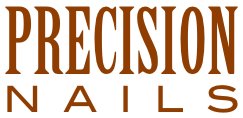Article Published in Stylist Magazine, February 2014
We may think that obtaining a beauty license makes us professional, but nothing demonstrates our commitment to being professional like paying our taxes. Granted, none of us aspires to this industry because we want to give the government its due, but it’s one of our greatest responsibilities nonetheless. Regardless of our personal motives or career goals, the government does not value our “artistry,” “technical expertise” and/or “client relations;” beyond basic consumer safety, it’s main concern is financial. Whether we work alone or with others, through good economic times and bad, our tax returns represent the financial health of our salon businesses, and our success as beauty professionals.
Before proceeding, let me clarify that I’m not a tax professional, nor should anything I write be taken as legal advice. You’re responsible for your own tax obligations, and I strongly recommend that you seek guidance from a qualified professional to ensure your compliance with federal, state and local tax laws and regulations. That being said, I hope you find the remainder of this article informative.
At the federal level, the Internal Revenue Service (IRS) relies on our voluntary compliance to accurately report our income under penalty of perjury. The effort this takes varies according to your employment status; an employee completing Form 1040 (U.S. Individual Income Tax Return) using information provided in a Form W-2 (Wage and Tax Statement) has a fairly simple task. As a salon owner with employees, I have a more complex task, which includes a Schedule C (Profit or Loss From Business, Sole Proprietorship). Beauty professionals who have incorporated their businesses, and/or have business partners have different forms to complete. Needless to say, but I’ll say it anyway, the more complicated the circumstances, the more important it is to engage a tax professional.
Timely payment of taxes due should be easy by having the appropriate amount of money withheld from paychecks or making quarterly estimated tax payments throughout the year. That may sound condescending and insensitive, particularly toward those who may struggle to pay their taxes, but it’s not meant to be. Money is one of those subjects that's hard to discuss without the risk of someone feeling uncomfortable or inadequate. Our relationship with money is very personal and private, typically not something we readily share with others. We all could benefit from knowing how to better manage our personal and business finances.
Paying our taxes impacts many aspects of our financial lives. For example, filing successive tax returns determines our ability to obtain credit and qualify for loans, and the amount of future retirement benefits through the collection of Social Security taxes, known as FICA (Federal Insurance Contributions Act) and/or SECA (Self-Employment Contributions Act). The legal consequences for NOT filing tax returns or falsifying information are civil penalties (underpayment tax penalty and interest, which can accrue indefinitely) or criminal prosecution. With the exception of tax attorneys, most people want to avoid any involvement with the IRS.
I've written extensively about being professional; frankly, I’m tired. Not of doing nails for my clients, but of explaining to other manicurists and salon owners why they should do them legally, and to consumers why professionalism matters. Is it really that hard to do the right thing? Given the proliferation of salons and individuals who could generously be described as being “unprofessional,” it's obvious that you don't need to be professional to make money in the beauty business. If many consumers don't seem to care whether or not a salon and its service providers hold valid licenses, do you think they care if taxes have been paid? Probably not, and that’s unfortunate.
When we’ve filed and paid our taxes, there's no certificate to display on the wall, or any other acknowledgment of our commitment to the beauty profession. A tax return is different from the licenses issued by our state governments which allow us to provide services for compensation in the first place. And while I don’t tolerate unprofessional behavior, I don't spend my days obsessing about it either. Setting a good example is enough work. It's really up to you to develop a clientele and associate yourself with colleagues and businesses who support your efforts to be professional, including meeting your tax obligations.
I could probably strategize more tax savings, and invest even more for “retirement,” but I’m very comfortable with my financial position. It’s mid-January, and I’m just days away from submitting my numbers. I’m never more grateful for technology than tax time, thanks to software and other online resources for making my finances more manageable. Writing my last estimated tax payment check, I’m optimistic that my trusted tax professional has done his job to ensure that I don’t dread Tax Day. Something to consider: doing your taxes may be distressing, but thinking about your death more so. Estate planning - yes, you should be doing that also. You know what they say about death and taxes...
By Jaime Schrabeck, Ph.D.
Welcome to the Precision Nails Blog
As a salon owner and licensed manicurist, my perspective on the nail industry could not be more practical. While some may be offended by the opinions expressed, please understand that I want to share information and stimulate discussion. Whether you want your nails done or do nails professionally, I hope you find this blog both useful and interesting.
Jaime Schrabeck, Ph.D.
Materials on this website may not be reproduced, redistributed, transmitted, copied, cached, or otherwise used, without prior written consent of Jaime Schrabeck. To request consent, contact Jaime at consulting@precisionnails.com.
Jaime Schrabeck, Ph.D.
Saturday, March 1, 2014
Subscribe to:
Posts (Atom)




